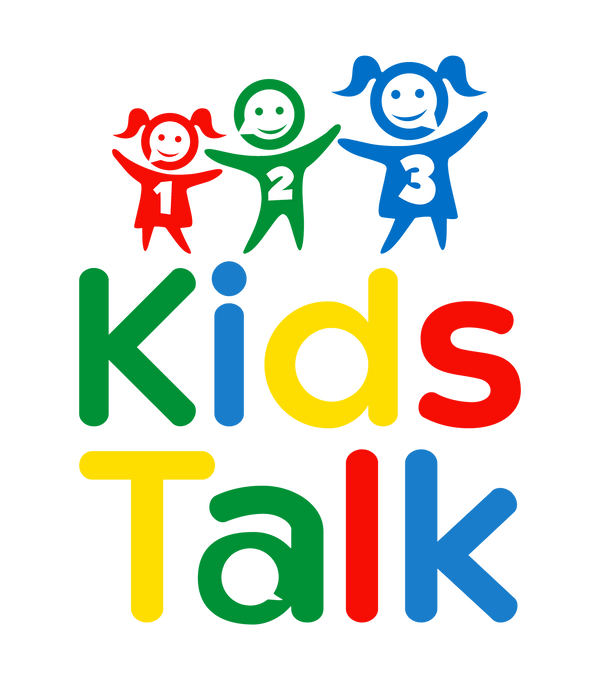The Power of Play: Unlocking Your Child's Potential Through Play-Based Learning
As parents, we all want the best for our children. We want them to be happy, healthy, and successful in life. But what's the best way to set them up for success? While traditional teaching methods have their place, there's a growing body of evidence that suggests play-based learning is a powerful tool for unlocking a child's full potential.
At 123 Kids Talk, we're passionate about the power of play. Our programs are designed to harness the natural curiosity and joy of childhood to foster speech, language, and social development. In this blog post, we'll explore the many benefits of play-based learning and how you can incorporate it into your child's daily life.
What is Play-Based Learning?
Play-based learning is an approach to education that allows children to learn through play. It's not just about having fun (although that's certainly a big part of it!). It's about creating a rich and stimulating environment where children can explore, experiment, and discover at their own pace.
In a play-based learning environment, children are encouraged to be active participants in their own learning. They choose the activities they want to engage in, and they learn through hands-on experiences, social interactions, and creative expression.
The Benefits of Play-Based Learning
Play-based learning offers a wide range of benefits for children of all ages. Here are just a few of the most significant:
- Cognitive Development: Play helps children develop critical thinking skills, problem-solving abilities, and creativity. When children engage in imaginative play, they're using their brains to create scenarios, solve problems, and think outside the box.
- Language Development: Play is a natural way for children to learn language. Through conversations with peers and adults, children expand their vocabulary, practice sentence structure, and develop communication skills.
- Social-Emotional Development: Play helps children learn how to interact with others, share, take turns, and resolve conflicts. It also helps them develop empathy, self-regulation, and emotional intelligence.
- Physical Development: Play helps children develop gross and fine motor skills, coordination, and balance. Running, jumping, climbing, and manipulating objects all contribute to physical development.
- Creativity and Imagination: Play encourages children to use their imaginations, express themselves creatively, and explore new ideas.
- Motivation and Engagement: Children are naturally motivated to learn through play. When they're having fun, they're more likely to be engaged and retain information.
- Stress Reduction: Play can help children reduce stress and anxiety. It provides a safe and supportive environment where they can express their emotions and work through challenges.
How to Incorporate Play-Based Learning at Home
You don't need fancy toys or expensive equipment to incorporate play-based learning at home. Here are a few simple ideas:
- Provide open-ended toys: Blocks, dolls, action figures, and art supplies are all great options.
- Create a play space: Set aside a designated area for play, whether it's a corner of the living room or a dedicated playroom.
- Follow your child's lead: Let your child choose the activities they want to engage in.
- Get involved: Play alongside your child, ask questions, and offer encouragement.
- Make it fun: The most important thing is to have fun! When children are enjoying themselves, they're learning without even realizing it.
123 Kids Talk and Play-Based Learning
At 123 Kids Talk, we're passionate about the power of play-based learning. Our programs are designed to harness the natural curiosity and joy of childhood to foster speech, language, and social development.
Our Chatter Box subscription service delivers a curated box of developmentally appropriate toys, books, and activities to your door every month. Each box is designed to promote specific skills and milestones, and it comes with a parent guide filled with tips and ideas for playful learning.
We also offer Playgroup Programs led by experienced educators. These programs provide a fun and social environment for children to learn and grow together.
Conclusion
Play-based learning is a powerful tool for unlocking your child's full potential. It's not just about having fun; it's about fostering cognitive, language, social-emotional, physical, and creative development. By incorporating play-based learning into your child's daily life, you're giving them the gift of a lifelong love of learning.
If you're looking for ways to support your child's development through play, we invite you to learn more about 123 Kids Talk. Our programs and resources are designed to empower parents and caregivers to create a rich and stimulating learning environment for their children.
Remember: Play is not just a luxury; it's a necessity for healthy child development. So let your child play, explore, and discover the world around them. You'll be amazed at what they can achieve!

